#not dnd stuff
Explore tagged Tumblr posts
Text
blog title is probably going to be changed since the campaign name might also! i’ll probably make it a quote from the campaign.
4 notes
·
View notes
Text
"My lord, Gandalf the Grey is coming. He is not welcome."

There is a group of people I play multiplayer mtg with, but as a competent deckbuilder who is not dating any of them I am cast into this role I have dubbed "The vizier". Meaning, I am, by this definition, the clear villain, but must advise players and alert them to the schemes my keen eyes spot across tables to survive.
"You must listen to me closely. I hold not threat to you. I am mearly trying to survive... I may be gaining counters, but he is one card away from completing his combo. You must fear the squirrels my lord, do not be deceived. They plot for your demise"
"Do not listen to his pleas of innocence. He carries with him the means for colorless mana. The stench of the eldrazi. You must end him before he becomes a threat not just for you, but the whole kingdom"
"think carefully with your target of banishment my lord. When have I harmed you? What is a single lifepoint between friends? But there across the board lies a much greater target! I ask you, what use would a man such as him have for double strike?
8K notes
·
View notes
Text

#dnd#d&d#dungeons and dragons#dnd humor#dnd memes#dnd lol#lol#lolz#lmfao#humor#funny#hilarious#comedy#lmao#humour#laugh#meme#comic#funny memes#funny stuff#memes#meme humor#hilarious memes#new memes#haha#ha ha funny#funny shit#dank humor#dank memes#lol meme
9K notes
·
View notes
Text

79K notes
·
View notes
Text
having brain rot about your own TTRPG character is so embarrassing. yes i love her and i think about her all day and i’ll take any excuse to talk about her. no, there’s no book or anything for you to read. she’s my emotional support rogue. she’s my fidget toy. i wish you could meet her. i made her up inside my head.
10K notes
·
View notes
Text
the funniest thing about ttrpgs is that you can create a guy and say "his name is blorbo bleebus. he sucks severely. i hope that many misfortunes befall blorbo bleebus. he does not deserve to be happy." and at least one of your friends will immediately jump in to say "noooo... don't bully blorbo bleebus... i love blorbo bleebus..."
#my stuff#ttrpg#dnd#pf2#blorbo tag#edit:#i was not gonna use oc tags for every individual blorbo bleebus but i will because everyone tagging their own blorbo bleebus is so right#blanka my beloved#oc: kalef blakovel#oc: ksenia mitras#oc: cercil rebrum#oc: deltak libroh#oc: blumel narmor
23K notes
·
View notes
Text

Dnd party
45K notes
·
View notes
Text








make me choose @jodieliker asked: Xenk when he’s hot/badass or Xenk when he’s funny/literal/overly serious
#dndhatedit#dndhat#dnd hat#filmedit#movieedit#honor among thieves#xenk yendar#dnd honor among thieves#d&d honor among thieves#dnd movie#dailyflicks#dungeons and dragons honor among thieves#i laughed all the while i was writing those subtitles in the last gif ashjdsjdf#my stuff
5K notes
·
View notes
Text

[Swan Song Dream 1/2]
#dnd#dungeons and dragons#artists on tumblr#art#ocs#marsilio#pettirossi#after all why shouldnt i draw fire like water#but yea just dream stuff + me getting revenge on will's player dont worry about it#i mean i could see parallelisms/foreshadowing in the next few comic pages but i see them everywhere i look#side tales
7K notes
·
View notes
Text
Principles and Laws of Magic for Fantasy Writers
Fundamental Laws
1. Law of Conservation of Magic- Magic cannot be created or destroyed, only transformed.
3. Law of Equivalent Exchange- To gain something, an equal value must be given.
5. Law of Magical Exhaustion- Using magic drains the user’s energy or life force.
Interaction and Interference
4. Law of Magical Interference- Magic can interfere with other magical effects.
6. Law of Magical Contamination- Magic can have unintended side effects.
8. Law of Magical Inertia- Magical effects continue until stopped by an equal or greater force.
Resonance and Conditions
7. Law of Magical Resonance- Magic resonates with certain materials, places, or times.
9. Law of Magical Secrecy- Magic must be kept secret from the non-magical world.
11. Law of Magical Hierarchy- Different types of magic have different levels of power and difficulty.
Balance and Consequences
10. Law of Magical Balance- Every positive magical effect has a negative consequence.
12. Law of Magical Limitation- Magic has limits and cannot solve every problem.
14. Law of Magical Rebound- Misused magic can backfire on the user.
Special Conditions
13. Law of Magical Conduits- Certain objects or beings can channel magic more effectively.
15. Law of Magical Cycles- Magic may be stronger or weaker depending on cycles (e.g., lunar phases).
17. Law of Magical Awareness- Some beings are more attuned to magic and can sense its presence.
Ethical and Moral Laws
16. Law of Magical Ethics- Magic should be used responsibly and ethically.
18. Law of Magical Consent- Magic should not be used on others without their consent.
20. Law of Magical Oaths- Magical promises or oaths are binding and have severe consequences if broken.
Advanced and Rare Laws
19. Law of Magical Evolution- Magic can evolve and change over time.
20. Law of Magical Singularities- Unique, one-of-a-kind magical phenomena exist and are unpredictable.
Unique and Imaginative Magical Laws
- Law of Temporal Magic- Magic can manipulate time, but with severe consequences. Altering the past can create paradoxes, and using time magic ages the caster rapidly.
- Law of Emotional Resonance- Magic is amplified or diminished by the caster’s emotions. Strong emotions like love or anger can make spells more powerful but harder to control.
- Law of Elemental Harmony- Magic is tied to natural elements (fire, water, earth, air). Using one element excessively can disrupt the balance and cause natural disasters.
- Law of Dream Magic- Magic can be accessed through dreams. Dreamwalkers can enter others’ dreams, but they risk getting trapped in the dream world.
- Law of Ancestral Magic- Magic is inherited through bloodlines. The strength and type of magic depend on the caster’s ancestry, and ancient family feuds can influence magical abilities.
- Law of Symbiotic Magic- Magic requires a symbiotic relationship with magical creatures. The caster and creature share power, but harming one affects the other.
- Law of Forgotten Magic- Ancient spells and rituals are lost to time. Discovering and using forgotten magic can yield great power but also unknown dangers.
- Law of Magical Echoes- Spells leave behind echoes that can be sensed or traced. Powerful spells create stronger echoes that linger longer.
- Law of Arcane Geometry- Magic follows geometric patterns. Spells must be cast within specific shapes or alignments to work correctly.
- Law of Celestial Magic- Magic is influenced by celestial bodies. Spells are stronger during certain astronomical events like eclipses or planetary alignments.
- Law of Sentient Magic- Magic has a will of its own. It can choose to aid or hinder the caster based on its own mysterious motives.
- Law of Shadow Magic- Magic can manipulate shadows and darkness. Shadowcasters can travel through shadows but are vulnerable to light.
- Law of Sympathetic Magic- Magic works through connections. A spell cast on a representation of a person (like a doll or portrait) affects the actual person.
- Law of Magical Artifacts- Certain objects hold immense magical power. These artifacts can only be used by those deemed worthy or who possess specific traits.
- Law of Arcane Paradoxes- Some spells create paradoxes that defy logic. These paradoxes can have unpredictable and often dangerous outcomes.
- Law of Elemental Fusion- Combining different elemental magics creates new, hybrid spells with unique properties and effects.
- Law of Ethereal Magic- Magic can interact with the spirit world. Ethereal mages can communicate with spirits, but prolonged contact can blur the line between life and death.
- Law of Arcane Symbiosis- Magic can bond with technology, creating magical machines or enchanted devices with extraordinary capabilities.
- Law of Dimensional Magic- Magic can open portals to other dimensions. Dimensional travelers can explore alternate realities but risk getting lost or encountering hostile beings.
- Law of Arcane Sacrifice- Powerful spells require a sacrifice, such as a cherished memory, a personal item, or even a part of the caster’s soul.
#writer#writing#writer things#writerblr#writerscorner#writing inspiration#writing tips#author#writers and poets#ao3 writer#writeblr#fantasy writer#sci fi and fantasy#writing inspo#writing resources#dnd campaign#dnd character#character development#original character#amwriting#writers community#writer stuff#writing blog#writers block#writerscommunity#worldbuilding#world building#fantasy series
5K notes
·
View notes
Text
hi there o/ i’m retiring elijah from my names list so the tag “elijah dms” is going to be replaced with “jay plays dnd”
1 note
·
View note
Text
Remember kids, Violins isn't always the answer! (Some times it's Atl-lute-l!)
Shameless* self-promo:
The College of Arrows is an archery learning space with tutorials ranging from equipment basics to advanced tricks. It's an active, constantly updating community with new courses added all the time, skills sharing, and opportunities for personalised tuition.
If that sounds like your sort of thing, click here to join our mailing list and find out more!
#archer#archery#nerd#fantasy#bard#dnd#final fantasy#genshin impact#*I do actually feel embarrassed plugging this stuff but I have to start somewhere
7K notes
·
View notes
Text
Little Xallergh and her hags moms
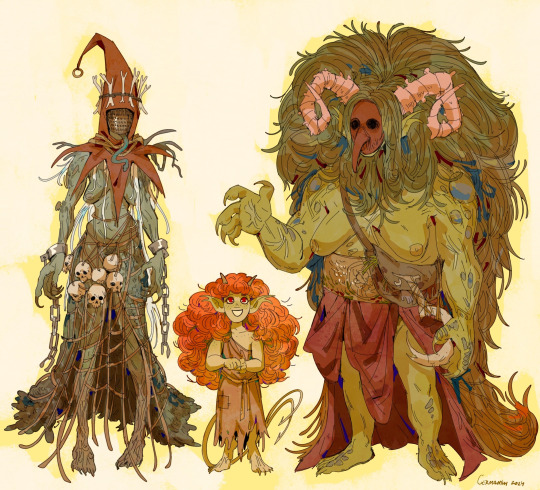
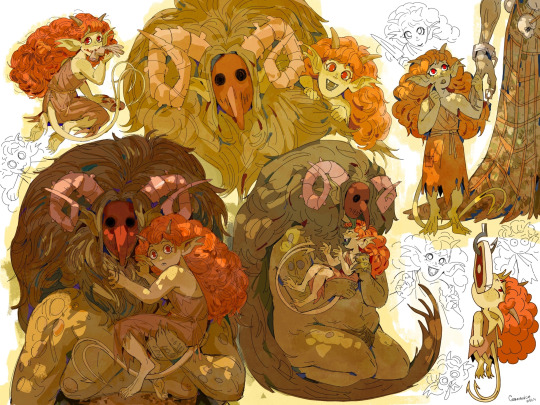

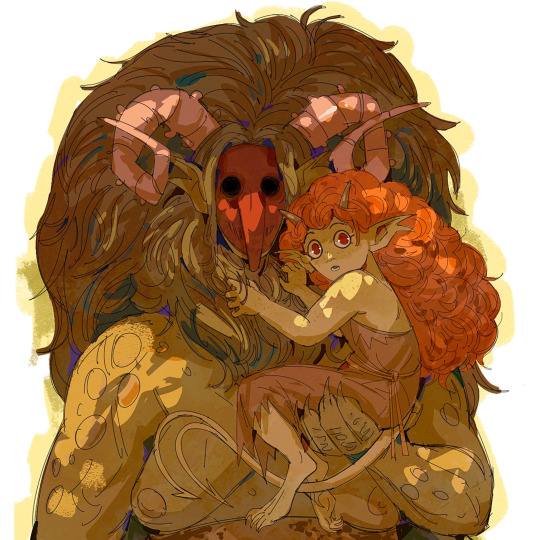
#artists on tumblr#oc#oc artwork#original work#oc stuff#original character#pathfinder wrath of the righteous#pathfinder#dnd tiefling#dnd character#dnd art#dnd5e#dnd#baba yaga#hags#hagsblood#tiefling
10K notes
·
View notes
Text


The perfect wizard set doesn’t exi….✨🎃
#wizardposting#wizardblr#wizard shit#wizard101#witchy#witch#witchcraft#witches#witchcore#witchblr#witch aesthetic#astrological#cosplayer#cosplay#renaissance#renfaire#larping#larp costume#larp character#larp stuff#fantasy larp#dnd#dnd character#dnd campaign#the magicians#dark mage#dark elf#night elf#halloween#costume
2K notes
·
View notes
Text
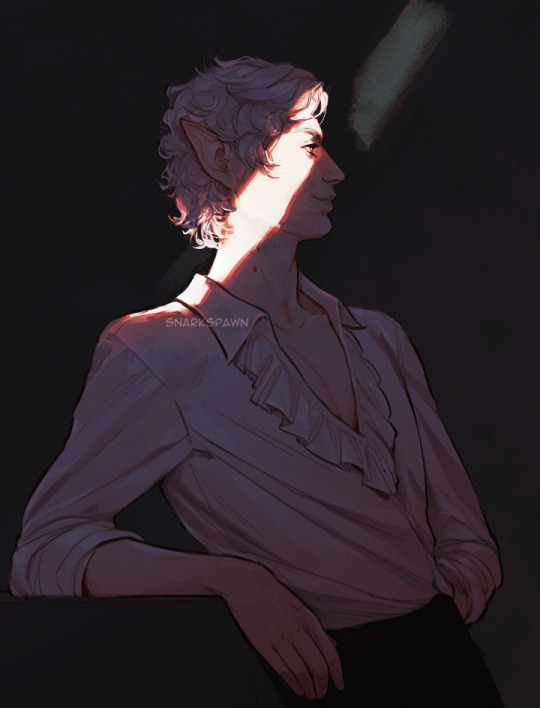
darling~
#baldur's gate 3#bg3#astarion#vampire#dnd#elf#stuff and things#userpharawee#did this as a brush test more than anything but I kind of like how it turned out
20K notes
·
View notes
Text
A Workshop for Creating Magical/ Fictional Crystals: A Guide from a Geologist
Hi folks, its me, here to talk about fictional writing again! Today I'm just tackling the idea of magical stones/mana stones by looking at existing minerals today and some neat properties that they have, and how you can apply these things to a fictional world. The goal is mainly to help you if you are stuck trying to come up with a unique magic system, or a unique identification/characteristic of your mineral.
First Things First: Mineral Shapes

I am exhausted, petered out, down-right fatigued by seeing every mineral depicted with having the crystal structure of calcite and quartz. There are soooooo many cooler, more interesting crystal structures, don't you think you would stop and take a look at a perfect cube in nature? It is completely unsettling.
Second: Color
Color within minerals can either be really important, or not important at all! It is your choice to decide if color is going to be something that means something to your mineral. But what are some times when the color is important? Well.... there are some elements that are called chromophores, this classification just indicates that these elements, when present, will determine the color of whatever they are in. So, if you wanted to treat mana like a chromophore, you could say, "Oh everything that contains mana turns green!" This could mean that regardless of the mineral, if that mineral is a specific color, it means it contains mana. This concept is exciting because you can just stop here and use minerals that already exist! You can also use it as an indicator for a magical ore! Chromophores are typically metals, so if you are making a new metal weapon, making the ore of that metal a unique color would make a lot of sense!
However, your mineral can also just be every color of the rainbow like quartz and perhaps that's what makes identifying your mana stones elusive and create an illusion of scarcity that your character can solve.

There are other things that can change the colors of minerals, like radiation damage, and electron exchange, but I think that is beyond what would be helpful! So lets talk about some unique color properties that happen in nature that seem magical in the first place! Maybe you don't need to design a mana stone, but you want a unique gemstone that only the royal family passes down or something (IDK).
The first one is the alexandrite effect! This is where a mineral can change color in natural light vs. incandescent light. (the mineral itself is not changing, but the lights contain different amounts of different colors that then get absorbed by the stone). Even if you don't use electricity in your fictional world, you could have the colors change in the presence of light magic. This could create fun misunderstandings about what the mineral is reacting to!
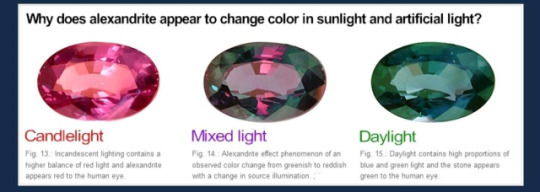
Pleochroism
Pleochroism is something that most minerals have, it is frequently used to help identify minerals in thin sections, however minerals are usually not pleochroic enough for it to be visible to the naked eye! Pleochroism is just a fancy name to describe the change in how light is absorbed based on the angle of the mineral! So if you scroll up to the first image where I showed a lot of crystal shapes, most of them have angles where they are longer and shorter! This will effect the way light travels in the crystal. Tanzanite is a popular mineral that does this.

Photochromism
This is when a mineral will change color (in a reversible way) when exposed to UV light (or sunlight), I am not going to go too into the details of why this is happening because it would require me to read some research papers and I just don't feel like it. The mineral that is best known for this is Hackmanite!
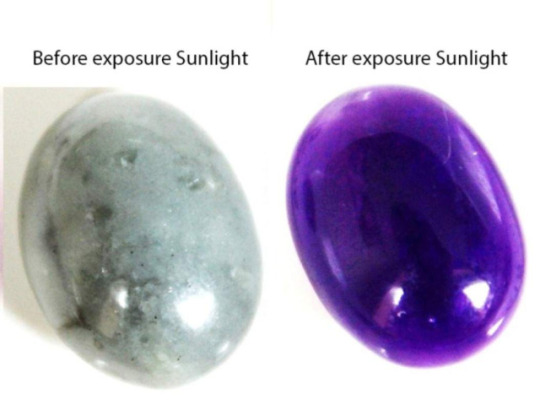
Alright! These are all the really cool color effects that might inspire you or maybe not, but now I am going to talk about how you might find your minerals within a rock!
When I see a lot of magical caves/mines, typically I see them with some variation of a geode honestly, but most minerals are not found like that! Now I am sure most of you guys have seen a geode, so I will not really talk about those, but I will talk briefly about porphyroblasts which is when the mineral grows larger than the minerals around it, this happens in metamorphic minerals!

sorry random stranger, but this is an image of garnets inside a finer-grained rock at gore mountain in New York!
Another way you might find minerals is in a pegmatite! This is when all minerals are really large! This is a formed from really slow crystalizing magma!
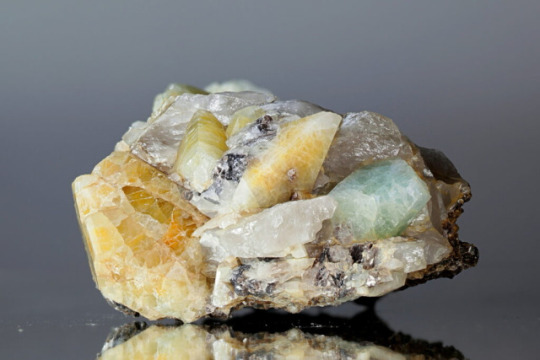
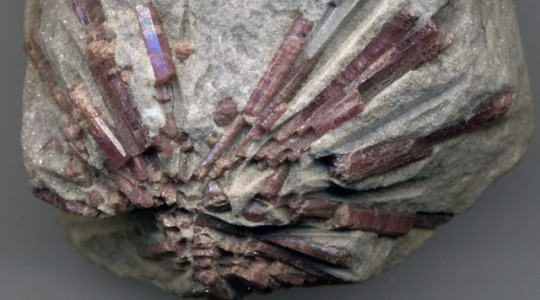
But something else to think about is that your mineral might just be massive, it doesn't have to have distinct crystals, it may be similar to jadeite where small grains grow together which leaves it looking smooth and seamless! A note about all of these is that you would have to mine into the rock to find these, there would not be any natural caves in these rocks! Caves are only ever really formed in limestones and maybe marbles (rocks that react with acid).
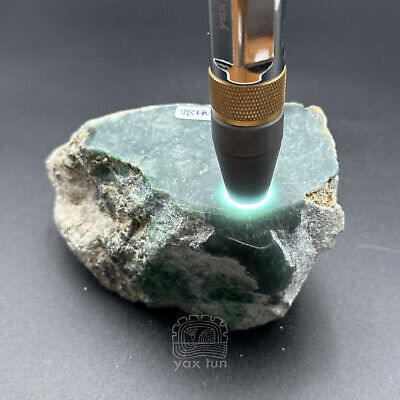
How can your characters identify these minerals?
Typically when you are out in the field you will look to see what type of rocks the minerals are found in (The overall texture of the rock will tell you how it formed). If you know how the rock formed, it will narrow down the amount of minerals you need to think about by quite a bit! Next, you are going to look closely at it and observe its crystal structure, does it have an obvious crystal? if so what is the general shape? If it is broken, how did it break? Did it fracture like glass or did it break along uniform planes. Some minerals have a thing called cleavage (breaks along planes of weakness). If a mineral exhibits this habit, it will again help narrow this down. Next we can look at color. Color can be misleading, because minerals like quartz can be any color imaginable, but minerals like olivine will always be green! The next thing your character can do is test for hardness, minerals all have a specific hardness that can help identify it as well.
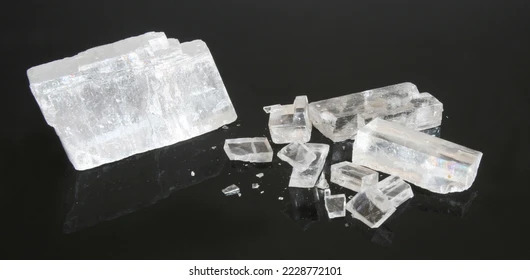
After you go through all of this, your mineral might have some special property! This could be magnetism, fluorescence, reactions to acid, or any of the color changing effects I mentioned above! Other than that, your character can take it back to a lab and do a number of things to identify it, but the most typical thing would be for them to make a thin section (very thin piece of the rock) and observe it under a cross polarized microscope!

On that note folks! I hope this helped in some way in thinking of new magic mineral properties! I have other guides that explore some different fictional worldbuilding issues you might run into, but if you have any topics you would like me to cover please that I haven't mentioned already, let me know!
#geology#rocks#creative writing#fictional world#worldbuilding#dnd#dnd worldbuilding#worldbuilding stuff#writing resources#info post#information#writing
6K notes
·
View notes